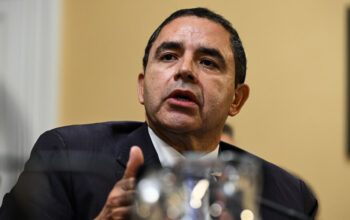
The Ukrainian authorities have rejected Russian claims that hundreds of Ukrainian troops were killed in a strike in the eastern city of Kramatorsk, and no evidence has emerged to support Moscow’s assertion.
On Sunday, Russia’s Defense Ministry said that it had carried out a strike on military dormitories in Kramatorsk that “killed 600 people,” calling it revenge for a Ukrainian attack on a facility housing Russian soldiers on New Year’s Day. That Ukrainian strike, in the occupied eastern city of Makiivka, left at least dozens of Russian soldiers dead and renewed criticism of the Russian military among some prominent supporters of Moscow’s war effort.
Analysts said Moscow’s claim of a retaliatory attack was likely aimed at placating anger among some Russians over Makiivka. But even some Russian pro-war bloggers, who closely follow military moves, expressed skepticism of the Defense Ministry’s account.
Ukrainian authorities acknowledged that there were strikes in Kramatorsk hours before Russia’s announcement, saying on Sunday morning that some buildings had been damaged by missiles, but they reported no casualties.
A New York Times journalist visited the scene of strikes in the city early on Sunday and saw no sign of casualties. At two badly damaged sites in the area — a vocational school and some garages — there were no ambulances or other indication that people had been killed or wounded.
The State of the War
Ukrainian authorities also sought to dispel Russia’s claim. Colonel Serhiy Cherevatyi, a spokesman for the eastern group of the Ukrainian Army, said that while infrastructure had been damaged in Kramatorsk, the Russian reports of troop deaths were false and “a bad attempt to whitewash the failures of their own military leadership.”
Pavlo Kyrylenko, the head of the Ukrainian military administration for the Donetsk region, which includes Kramatorsk, said in a post on Telegram, the social messaging app, that there had been “seven missile strikes” on Kramatorsk and the surrounding area overnight on Saturday into Sunday, “damaging the buildings of an educational institution and an industrial facility.” He added that an industrial area was hit in the nearby city of Kostiantynivka, but there were no initial reports of injuries or deaths.
Russia’s assertions of a deadly strike, and Ukraine’s rebutting of it, were the latest in a series of claims and counterclaims by both sides of deadly strikes on enemy troops not on the battlefield. Other than the strike in Makiivka — which both sides acknowledged, although they diverged widely on the death toll — there has been little information to allow independent verification of the claims.
The Institute for the Study of War, a research group based in Washington, said that Russia’s assertion of major losses for Ukrainian forces in Kramatorsk was likely intended to bolster support among its domestic audience after the Makiivka attack, one of the largest losses of life for Moscow’s troops in a single incident since they invaded Ukraine last February. But the group said that bloggers who are typically pro-Russian and who closely follow the military had accused the Russian military of “fabricating a story to ‘retaliate’ for the Makiivka strike instead of holding Russian leadership responsible for the losses accountable.”
The Russian Defense Ministry said 89 Russian troops had been killed in the strike in Makiivka, while Ukrainian figures put the toll much higher, at around 400. The actual death toll could not be independently verified.
Russian authorities quickly blamed troops in Makiivka for using cellphones and exposing their location to Ukrainian forces equipped with long-range weaponry from Western allies. Many Russian pro-war bloggers said other factors had contributed to the lethality of the strike — including the decision by commanders to house so many troops in one place and near munitions — and criticized the ministry for trying to deflect blame.
Oleksandra Mykolyshyn and Nicole Tung contributed reporting.



